Friday, June 14
Plenary: Principles of isobaric counter diffusion to prevent DCS
Richard Moon, MD
About the Lecture:
This lecture will describe how breathing gases with properties different from nitrogen and helium can be used during decompression to reduce bubble formation and decompression sickness.
About the Speaker: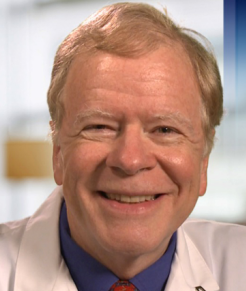 Richard Moon earned BSc and MD degrees at McGill University in Montreal, Canada, then trained in internal medicine and biomedical engineering at the University of Toronto. In 1979, he went to Duke to train in pulmonary and critical care medicine. After pulmonary/critical care fellowship he completed training in anesthesiology and in 1983 joined the Duke University faculty. He is Professor of Anesthesiology, Professor of Medicine and Medical Director of the Duke Center for Hyperbaric Medicine & Environmental Physiology. His research has included the physiology of immersion and predictors of arterial PCO2 during underwater exercise. His work has included the role of patent foramen ovale (PFO) in decompression sickness (DCS). He has been particularly interested in causes and prevention of immersion pulmonary edema, a condition that continues to occur in Navy Special Forces trainees. He has been supported by several Navy grants, recently including use of an experimental breathing gas (perfluoromethane) to decrease decompression requirements after heliox dive. After completing human experiments demonstrating upregulation of mitochondrial biogenesis with low dose carbon monoxide exposure, he is currently studying its effect on training of the respiratory muscles. His work has also included mechanisms of sudden death during triathlons and causes of perioperative opioid-induced respiratory depression, and improved monitoring techniques for monitoring patients to detect it.
Richard Moon earned BSc and MD degrees at McGill University in Montreal, Canada, then trained in internal medicine and biomedical engineering at the University of Toronto. In 1979, he went to Duke to train in pulmonary and critical care medicine. After pulmonary/critical care fellowship he completed training in anesthesiology and in 1983 joined the Duke University faculty. He is Professor of Anesthesiology, Professor of Medicine and Medical Director of the Duke Center for Hyperbaric Medicine & Environmental Physiology. His research has included the physiology of immersion and predictors of arterial PCO2 during underwater exercise. His work has included the role of patent foramen ovale (PFO) in decompression sickness (DCS). He has been particularly interested in causes and prevention of immersion pulmonary edema, a condition that continues to occur in Navy Special Forces trainees. He has been supported by several Navy grants, recently including use of an experimental breathing gas (perfluoromethane) to decrease decompression requirements after heliox dive. After completing human experiments demonstrating upregulation of mitochondrial biogenesis with low dose carbon monoxide exposure, he is currently studying its effect on training of the respiratory muscles. His work has also included mechanisms of sudden death during triathlons and causes of perioperative opioid-induced respiratory depression, and improved monitoring techniques for monitoring patients to detect it.
Plenary: Imagineering the Future of Diving
Sandra Chapman
About the Lecture
Established in 1946, the Office of Naval Research (ONR) has been at the forefront of supporting science and technology research to benefit both naval services and the nation. From its inception, ONR has prioritized enhancing our understanding of medical injuries that jeopardize the safety of Naval operators and compromise mission effectiveness.
In 2006, ONR expanded its focus by adding the Undersea Medicine program as a National Naval Responsibility. This commitment ensures scientific productivity, the training of new investigators, and the maintenance of critical Undersea Medicine research facilities. The program invests in research at various levels, from basic to applied research and product development, utilizing both internal and external funding sources that supports domestic and international researchers from academia and industry.
This balanced approach allows the program to pursue a mix of visionary projects that challenge current limitations, while also addressing immediate needs and filling knowledge gaps. Ultimately, the Undersea Medicine program aims to provide our undersea operators with solutions to improve safety and expand their operational capabilities.
About the Speaker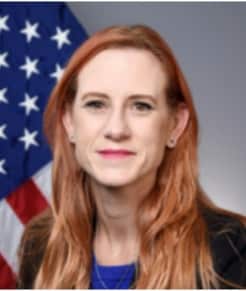 Program Officer leading Undersea Medicine Program: The goal of this program is to develop improved methods, models, treatments and devices for understanding, preventing or mitigating factors that negatively impact divers and submariners. Solutions should extend warfighting capability during undersea operations to maximize freedom of action and warfighter dominance.
Program Officer leading Undersea Medicine Program: The goal of this program is to develop improved methods, models, treatments and devices for understanding, preventing or mitigating factors that negatively impact divers and submariners. Solutions should extend warfighting capability during undersea operations to maximize freedom of action and warfighter dominance.
Plenary: Commercial Diving & DMAC
Phil Bryson, MBBS
About the Lecture:
This talk will introduce the audience to the set up and roll of the Diving Medical Advisory Committee and what it tries to do in the commercial diving world.
About the Speaker:
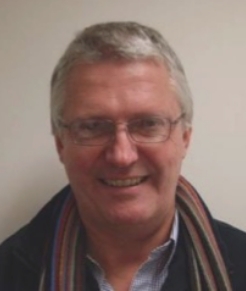 Dr Bryson started off his diving medicine interest at Discovery Bay Hyperbaric Unit in Jamaica whilst he was working in Kingston in the very early days of his medical career. He then moved to Plymouth (UK) where he worked as a volunteer at the Diving Diseases Research Centre for 6 years whilst he completed his training to be a GP.
Dr Bryson started off his diving medicine interest at Discovery Bay Hyperbaric Unit in Jamaica whilst he was working in Kingston in the very early days of his medical career. He then moved to Plymouth (UK) where he worked as a volunteer at the Diving Diseases Research Centre for 6 years whilst he completed his training to be a GP.
He then managed to turn his hobby into a career and carried on working at DDRC for the next 25 years being the Medical Director there for his last 11 years, prior to leaving to take up a job at International SOS in December 2010. In 2023 TAC Healthcare took over the Aberdeen International SOS business and he is now their Medical Director of Diving Services.
He has published extensively in specialist medical journals, been the medical advisor to Sport Diving organisations in the UK, sits on the DMAC, EDTC, UK Sport Diving Medical Committee and EUBS committees. He has also sat on several IMCA working groups.
- DMAC is Diving Medical Advisory Committee (advising the Global Diving Industry)
- EDTC is the European Diving Technical Committee
- EUBS is the European Underwater and Baromedical Society
- IMCA is the International Marine Contractors Association
Plenary: Hard Hat Medicine: The Medical Care of the Compressed Air Tunnel Worker
Owen J. O'Neill, MD, MPH, FUHM, FACHM, FAPWCA, FAPWHC
About the Lecture
Describe the history of tunnel boring and the role of the hyperbaracist and hyperbaric medical team, OSHA rules and regulations, and the medical assessment of the CAW. Describe some of the various medical challenges while working as an underground hyperbaric medical team.
About the Speaker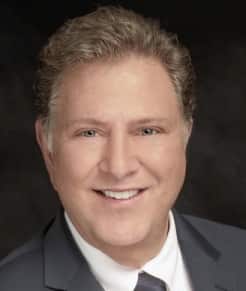 Dr. Owen O’Neill is President and Medical Director of U.S. Hyperbaric Tunnel Medicine and Research Team and the medical director of the Department of Undersea & Hyperbaric Medicine at Phelps Hospital Northwell Health. He has been an active member of the UHMS for many years and currently serves as the co-chairman of the education committee and is a member of the Publications Committee and diving committees. He is the recipient of the UHMS commercial diving award and Excellence if hyperbaric medicine award. He has served various positions on the board of the UHMS and is the current President-elect.
Dr. Owen O’Neill is President and Medical Director of U.S. Hyperbaric Tunnel Medicine and Research Team and the medical director of the Department of Undersea & Hyperbaric Medicine at Phelps Hospital Northwell Health. He has been an active member of the UHMS for many years and currently serves as the co-chairman of the education committee and is a member of the Publications Committee and diving committees. He is the recipient of the UHMS commercial diving award and Excellence if hyperbaric medicine award. He has served various positions on the board of the UHMS and is the current President-elect.
Plenary: Top articles in Undersea Medicine
Thomas Gregory, MD: Duke Fellow
About the Lecture:
Overview of purpose, data, and takeaway points from pertinent publications added to the Undersea Medicine literature from July 2023 to June 2024.
About the Speaker: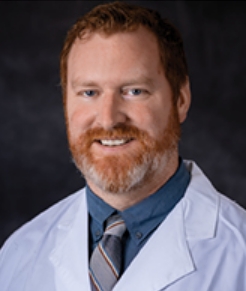 Dr. Gregory is a second career physician, currently in Undersea and Hyperbaric Medicine fellowship at Duke Health after completing primary specialty training in Emergency Medicine.
Dr. Gregory is a second career physician, currently in Undersea and Hyperbaric Medicine fellowship at Duke Health after completing primary specialty training in Emergency Medicine.
Plenary: Descendency/Ascendancy of the LSU HSC Hyperbaric Fellowship Program: A history to die for.
Keith Van Meter, MD
About the Lecture:
Dr. Van Meter will detail the long road to present of the LSU HSC/NOLA hyperbaric physician fellowhip training program.
About the Speaker: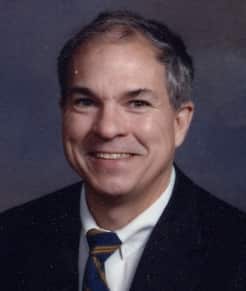 Keith Van Meter, MD completed his undergraduate education at Miami University at Oxford, Ohio in 1968 with a degree in chemistry and English. He graduated from George Washington University School of Medicine in 1973 with a degree in medicine. He trained at Tulane University School of Medicine/Charity Hospital in New Orleans, Louisiana. He is board certified in Emergency Medicine with subspecialty board certification in Pediatric Emergency Medicine and Diving and Hyperbaric Medicine. From 1989 to the present, Dr. Van Meter has served as the Chief of the Section of Emergency Medicine in the Department of Medicine at LSU Health Sciences Center in New Orleans, Louisiana. He is the Medical Director of a 140-physician Emergency Medicine group in south Louisiana and Mississippi (Keith Van Meter & Associates). He acted as the Medical Director of the Jo Ellen Smith Medical Center Multiplace Hyperbaric Medicine Unit from 1978 until the hospital closed in 1998. He has served as the Medical Director of the Baromedical Research Institute Hyperbaric Laboratory in New Orleans, Louisiana since 1980. Dr. Van Meter served on a task force under Dr. Sam Poole and Dr. Norman McSwain to develop medical support planning for NASA for astronauts aboard a space station from 2000-2002. In his private practice, he has treated over 600 hundred commercial divers in the Gulf of Mexico who suffered from acute decompression sickness or arterial gas embolism. Dr. Van Meter’s primary research interest is the application of hyperbaric oxygen in the ACLS, PALS and ATLS in cardiopulmonary arrest utilizing a swine model.
Keith Van Meter, MD completed his undergraduate education at Miami University at Oxford, Ohio in 1968 with a degree in chemistry and English. He graduated from George Washington University School of Medicine in 1973 with a degree in medicine. He trained at Tulane University School of Medicine/Charity Hospital in New Orleans, Louisiana. He is board certified in Emergency Medicine with subspecialty board certification in Pediatric Emergency Medicine and Diving and Hyperbaric Medicine. From 1989 to the present, Dr. Van Meter has served as the Chief of the Section of Emergency Medicine in the Department of Medicine at LSU Health Sciences Center in New Orleans, Louisiana. He is the Medical Director of a 140-physician Emergency Medicine group in south Louisiana and Mississippi (Keith Van Meter & Associates). He acted as the Medical Director of the Jo Ellen Smith Medical Center Multiplace Hyperbaric Medicine Unit from 1978 until the hospital closed in 1998. He has served as the Medical Director of the Baromedical Research Institute Hyperbaric Laboratory in New Orleans, Louisiana since 1980. Dr. Van Meter served on a task force under Dr. Sam Poole and Dr. Norman McSwain to develop medical support planning for NASA for astronauts aboard a space station from 2000-2002. In his private practice, he has treated over 600 hundred commercial divers in the Gulf of Mexico who suffered from acute decompression sickness or arterial gas embolism. Dr. Van Meter’s primary research interest is the application of hyperbaric oxygen in the ACLS, PALS and ATLS in cardiopulmonary arrest utilizing a swine model.
